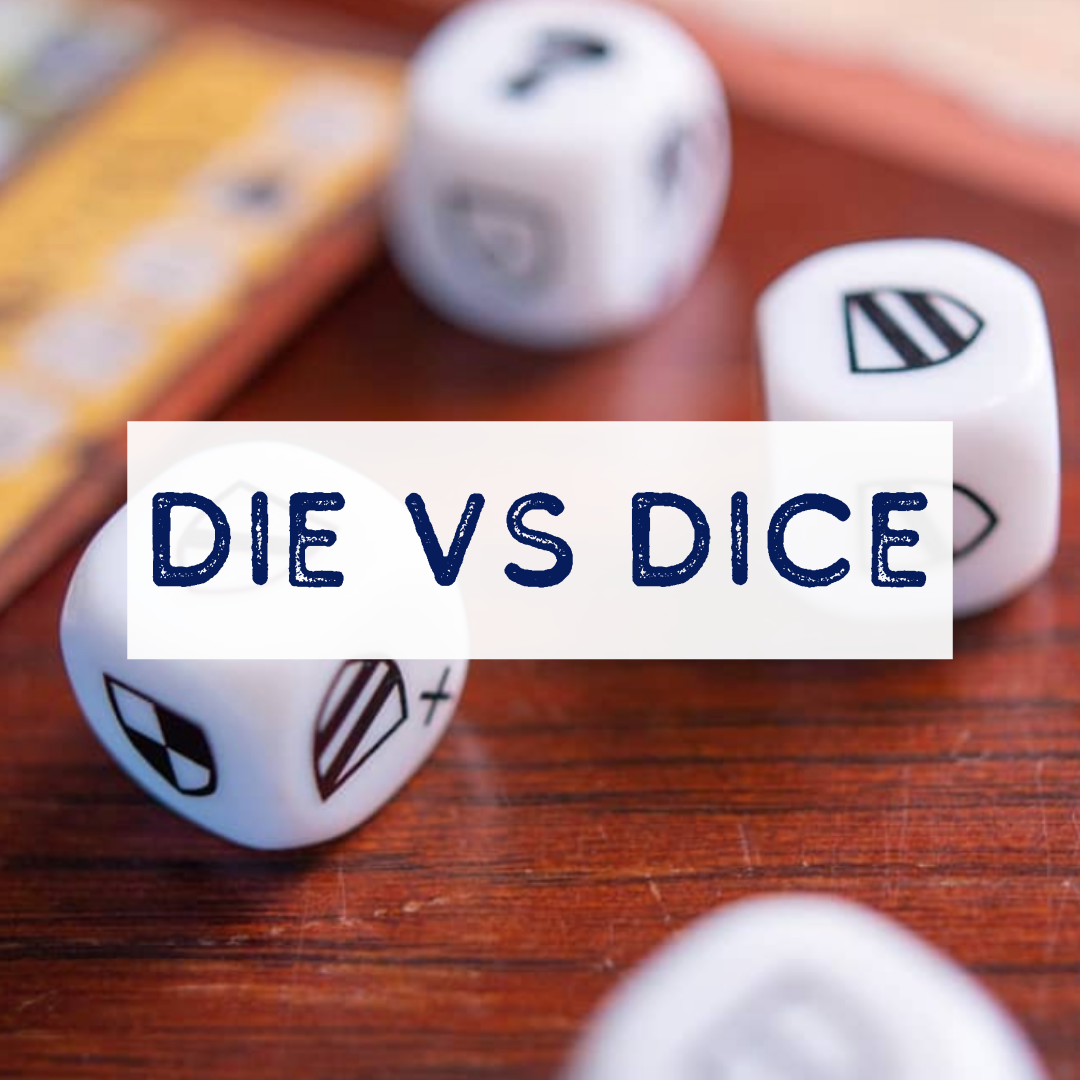“Dice” in Board Games
As I write this, Blue Orange Games is preparing to debut sixteen new games at the annual New York Toy Fair. We will soon be one of hundreds of toy & game publishers filling up New York City’s Javits Center, with giant booths showing off all our new products for the year. And if you look closely at the new games, you might notice the language we are using to talk about them has changed. Going forward, Blue Orange Games rule books will use the word “dice” to refer to both the singular and plural forms of the component.
Part of my responsibilities at Blue Orange include the writing and revising of rulebooks. And my goal in this is to effectively communicate the rules of a game without confusion or discomfort. But in the weeks since deciding to change our language standards, I must admit that I still occasionally feel some discomfort saying “dice” in the singular form, which has caused me to ruminate on the subject longer.
There is no need to say “die” in board games, and if we are to go as far as the old adage suggests, then one should in fact “never say die.” It saddens me that during my time playing board games across America, I have often overheard one person deride another’s usage, by saying something like, “Actually, it’s die”, or more bluntly, a single stern, “die,” used to chastise and correct, often accompanied by a condescending eye-roll and sigh.
As a self-proclaimed “fan of language,” it is unacceptable to me that we feel so comfortable evoking a word that is a command for death when talking about the componentry of a game. And because I specifically work in children’s games, I really don’t want the word “die” creeping into my games about adorable penguins and rainbow dice. I don’t think that any little person should be telling another that “it is imperative that death finds them.”

Now, I suppose I should be clear that I understand “die” and “die” are homonyms. I get that they are separate words, with separate meanings, but taken out of context there is no way to tell them apart. Even taken IN context, the word still resonates in our minds with the meaning of the other sense, and this is not to our benefit.
My hope is that “die” goes the way of “whom” and “fewer” and the dreaded semicolon; hapless relics of speech long gone by. I believe the point of language is to be understood, to communicate an idea clearly from speaker to listener. I don’t think there is a single English speaker who would misinterpret the phrase “roll one dice”. But there are plenty of people who would be confused by the blunt utterance of the word “die!”
I am also aware that the act of changing our company standard to “dice” MIGHT have the unwanted side effect of causing more people commanding conformation to “die!” But should this turn out to be the case, it is my hope that it will also conversely embolden and strengthen others to deny the die-sayers. Language is ours to do what we speak with it. There is nothing forcing us to succumb to “die” and it is for these reasons that I am happy with our adoption of “dice” in the singular, and I encourage you to join us in embracing this change.
If we follow traditional rules for English grammar, the origin of the word in the French language (des) would actually suggest that the proper usage would be “die” and “dies” (as used with the cutting machines referred to as a “die” in the singular and “dies” in the plural). There is also evidence to suggest dice be treated as a mass noun like “milk” or “oil” because very often we don’t actually care about the specific number of dice, just that a good enough amount is handed to us. But such relevant topics take us further away from the singular issue in my mind. There is simply no need to force a word for death into a children’s game.
I believe it is in our best interest to embrace language as the silly and strange experiment that it is! There is no need for it to be morbid. As an homage to the absurdism of language of the past, I leave you with a simple poem to ponder, from the poet and fabulist, Ambrose Bierce:
A cube of cheese no larger than a die
May bait the trap to catch a nibbling mie
